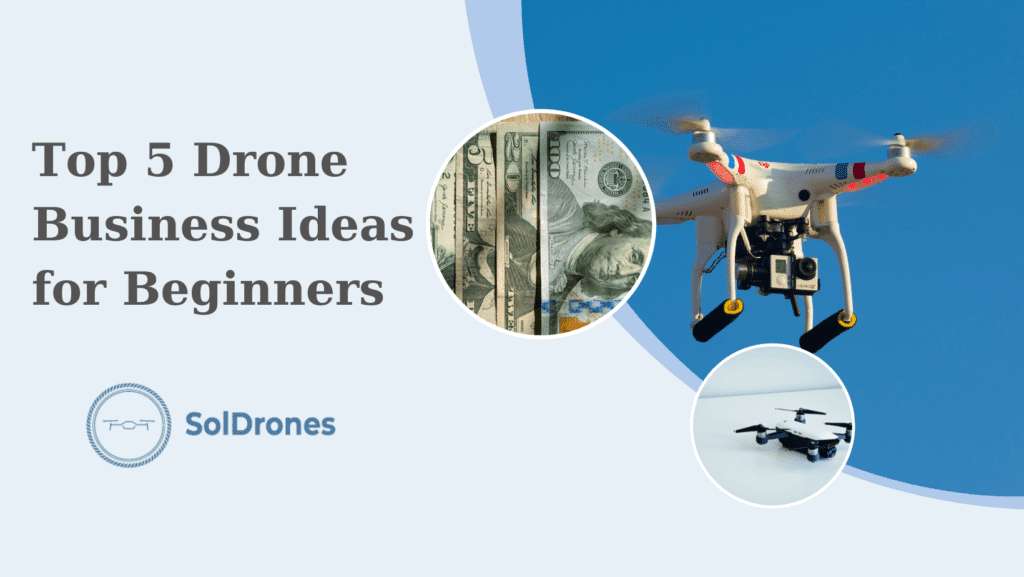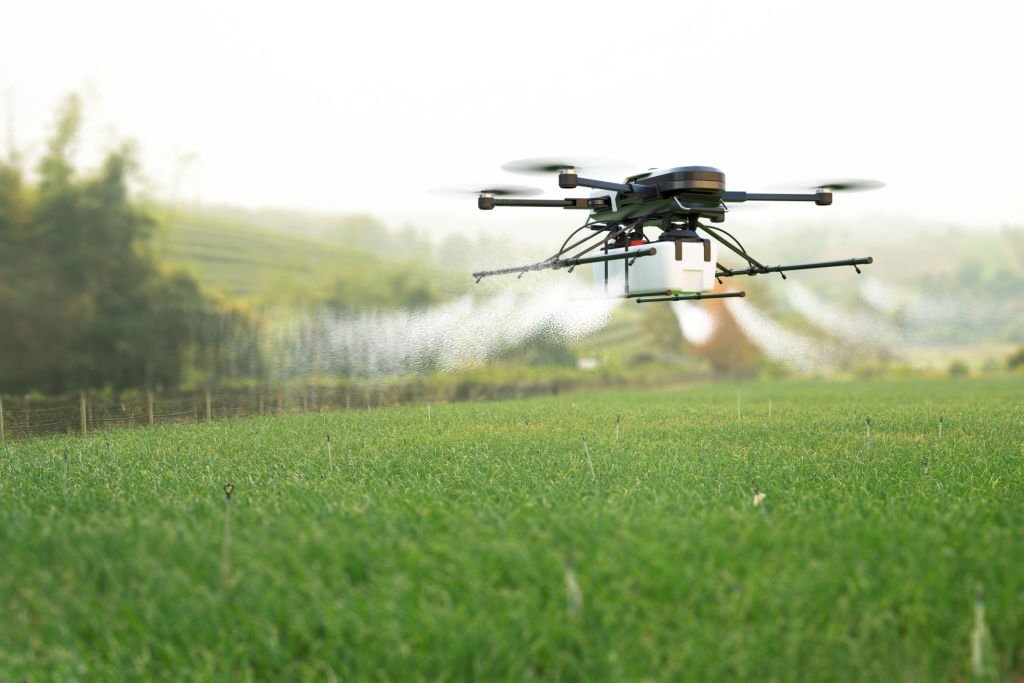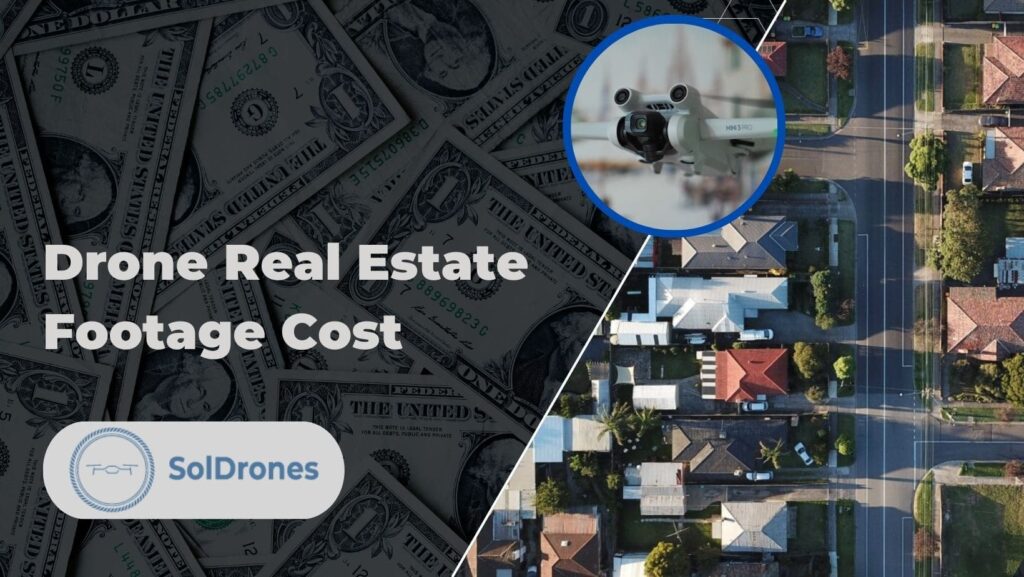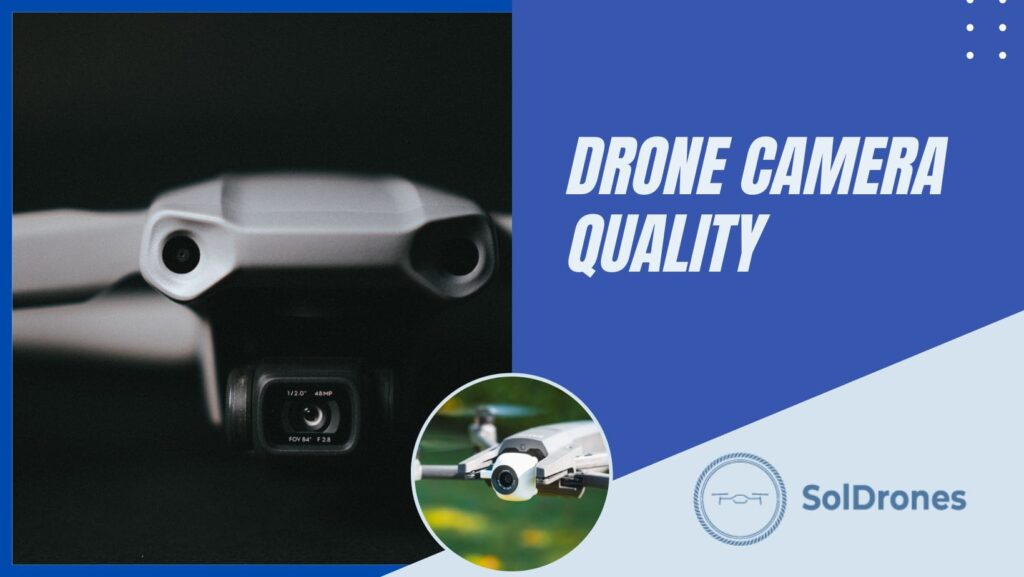The drone industry has witnessed remarkable growth in recent years, revolutionizing various sectors such as photography, videography, agriculture, construction, and delivery services. Drones, or uncrewed aerial vehicles (UAVs), have become increasingly popular due to their versatility, efficiency, and cost-effectiveness. This rapid advancement has created a promising landscape for aspiring entrepreneurs looking to venture into the drone business.
This comprehensive guide will explore the top five drone business ideas tailored specifically for beginners. Whether you’re passionate about drones or an entrepreneur seeking to tap into this thriving industry, we’ll provide valuable insights and actionable steps to get started.
The primary objective of this guide is to equip you with a solid understanding of the drone industry’s potential and to present them with innovative business ideas that capitalize on this potential. By the end of this article, you can expect to have a clear vision of the various opportunities available and the knowledge to launch your own successful drone business.
So, if you’re ready to embark on an exciting journey into drone entrepreneurship, let’s dive in and explore the top five drone business ideas for beginners!
Article Highlights
- The commercial drone industry is poised for growth and there’s never been a better time to start a commercial drone business
- For pilots that set up their business and marketing tactics correctly, their drone business can be quite lucrative.
- Inspection services, photography, and mapping are a few of the top drone business ideas
Drone entrepreneurship refers to the practice of starting and operating a business centered around the use of drones or uncrewed aerial vehicles (UAVs). It involves leveraging the capabilities of drones to provide innovative solutions and services across various industries.
In today’s business world, drone entrepreneurship has gained significant importance due to the numerous advantages offered by this technology.
Drone entrepreneurship has gained significant importance due to the numerous advantages offered by this technology.
Drones have advanced sensors, cameras, and GPS capabilities, enabling them to perform tasks efficiently and collect valuable data from the sky. This opens many opportunities for entrepreneurs to capitalize on this technology and provide unique client services.
One of the key advantages of drone entrepreneurship is the ability to access areas that are difficult or dangerous for humans to reach. Drones can be used for aerial photography and videography, allowing businesses to capture stunning visuals and videos for marketing, real estate, and event coverage purposes. Additionally, drones can be employed in industries such as agriculture and infrastructure inspection, where they can assess crops, monitor livestock, inspect buildings and bridges, and identify potential issues or areas for improvement.
Another significant aspect of drone entrepreneurship is its cost-effectiveness. Drones can perform tasks more efficiently and at a fraction of the cost compared to traditional methods, such as manned aerial vehicles or manual labor. This cost advantage makes drone services accessible to a wider range of businesses and individuals, creating a lucrative market for entrepreneurs.
Here are some bullet points highlighting the importance of drone entrepreneurship in today’s business world:
- Access to Difficult or Dangerous Areas: Drones can reach places that are challenging for humans to access, allowing businesses to gather valuable data and perform tasks efficiently.
- Aerial Photography and Videography: Drones enable businesses to capture stunning visuals and videos from unique perspectives, which can be used for marketing, real estate, and event coverage.
- Cost-Effectiveness: Drones offer a more affordable alternative compared to traditional methods, making drone services accessible to a wider range of businesses and individuals.
- Efficiency and Time-Saving: Drones can perform tasks faster and more efficiently than manual labor or traditional vehicles, leading to increased productivity and reduced operational costs.
- Data Collection and Analysis: Drones equipped with sensors and cameras can collect data from the sky, providing businesses with valuable insights for decision-making, such as crop assessment, infrastructure inspection, and environmental monitoring.
- Innovation and Differentiation: Incorporating drones into business operations can give entrepreneurs a competitive edge, showcasing their technological prowess and offering unique services to clients.
- Scalability and Versatility: Drone businesses have the potential for scalability and diversification across multiple industries, allowing entrepreneurs to adapt and explore new opportunities.
- Environmental Benefits: Drones can reduce carbon emissions and environmental impact by replacing traditional vehicles for certain tasks, such as delivery and inspection.
How Lucrative is a Drone Business?
The drone industry has demonstrated significant growth and presents lucrative opportunities for entrepreneurs. Let’s explore the current market size, future growth prospects, profit potential, and some successful drone businesses as examples.
The global drone market has been expanding rapidly. A recent study produced by Bloomberg indicated that the global drone industry is expected to surpass $100B by the year 2030. About 35%-40% of the growth will come from commercial and recreational drone usage. This growth is fueled by increasing adoption across industries, advancements in drone technology, and supportive regulatory frameworks.
Drone businesses have various profit potentials depending on the chosen niche and target market. Here are a few examples:
Aerial Photography and Videography: This segment highly demands stunning aerial visuals in industries such as real estate, tourism, events, and marketing. By offering professional photography and videography services, drone entrepreneurs can generate substantial revenue through project-based contracts, licensing, or selling stock footage.
Agriculture and Crop Monitoring: Drones with sensors and cameras can assist farmers in crop monitoring, irrigation management, and pest detection. By providing precision agriculture services, drone businesses can help increase crop yields and optimize resource utilization, offering value to farmers and generating revenue through service contracts or subscription models.
Infrastructure Inspection: Drones can efficiently inspect and assess infrastructure such as bridges, buildings, and power lines, reducing costs and enhancing safety. Drone entrepreneurs can provide inspection services to government agencies, construction companies, and infrastructure management firms, earning revenue through inspection contracts or maintenance agreements.
How to Start a Drone Business
Starting a drone business requires careful planning and consideration. Below are the key steps to get you started on your drone entrepreneurship journey.
Understanding the Basics
From what’s required to start a business to finding your first customers, starting a drone business takes effort, but it’s not impossible. Here are some of the basis:
- Requirements: Familiarize yourself with the legal and regulatory requirements for operating drones in your region. This may include obtaining a remote pilot certificate, registering your drone, and adhering to airspace regulations.
- Investment: Determine your budget and assess the initial Investment required for your drone business. Consider purchasing drones, equipment, insurance, marketing, and business operations.
- Licensing: Research and comply with any specific licensing or certifications required for the type of drone business you plan to start. For example, if you offer aerial photography services, you may need additional certifications related to photography or videography.
Choosing the Right Business Model and Target Market
Your operating business model and target market will drastically influence the chances of your success.
Business Model: Identify the specific services you will offer with your drones. Will you focus on aerial photography, surveying, inspection, delivery services, or a combination of these? Determine your unique value proposition and consider factors such as pricing, competitive analysis, and revenue streams.
Target Market: Define your target market based on the services you offer. Consider industries such as real estate, construction, agriculture, events, or emergency services. Research market demand, competition, and potential clients to determine the viability and profitability of your chosen market segment.
Buying Your First Drone
The first drone you buy for your drone business must be well suited for the needs of your customers. Essential tips:
- Choose a drone that aligns with your business requirements and budget.
- Consider factors such as flight time, payload capacity, camera quality, stability, and durability.
- Research different drone models and compare their features to find the best fit for your intended services.
Legal Considerations: Ensure your drone complies with local regulations, including size, weight, and operational restrictions. Check if any additional permits or certifications are required for the specific drone model you plan to use.
Accessories and Equipment: Invest in necessary accessories such as spare batteries, chargers, propellers, storage cases, and a quality controller. You may also need specialized equipment like camera gimbals or sensors, depending on your services.
Remember to conduct thorough research and stay updated with industry trends and advancements. Consider networking with other drone professionals and joining relevant industry associations to stay informed about best practices and opportunities. Also, create a comprehensive business plan outlining your goals, strategies, and financial projections.
Starting a drone business requires dedication, continuous learning, and adaptability to succeed in this dynamic industry. By understanding the basics, selecting the right business model and target market, and carefully choosing your drone equipment, you can set yourself up for a strong start in your drone entrepreneurship journey.
Top 5 Drone Business Ideas for Beginners
Numerous business opportunities are available if you’re interested in venturing into the exciting world of drone entrepreneurship. This section will explore the top five drone business ideas suitable for beginners. Each idea will be accompanied by a detailed description, including the pros and cons, the initial investment required, potential profitability, and who it’s best suited for.
Whether you are passionate about photography, mapping, inspection, delivery, or training, these ideas will provide a solid foundation to start your drone business journey.
Drone Photography and Videography Services
With a high demand for aerial visuals in industries like real estate and tourism, drone photography, and videography services offer a flexible business opportunity.
Although competition can be intense, the initial investment for high-quality drones, cameras, and editing equipment is relatively low, making it accessible for beginners.
- Pros: High demand for aerial visuals in industries like real estate, tourism, and events. Relatively low startup costs compared to other drone businesses. Flexibility to work on a project basis or offer recurring services.
- Cons: Competition can be intense, requiring creativity and unique value propositions to stand out. Initial Investment is required for high-quality drones, cameras, and editing equipment.
- Initial Investment: $1,500 to $5,000 for a drone, camera, accessories, and editing software.
- Potential Profitability: Profit margins vary based on market demand and pricing strategy. Average rates for drone photography range from $100 to $500 per hour or project.
- Best Suited For: Individuals with a passion for photography and videography, creative professionals, and those with strong marketing skills to attract clients.
Drone Mapping and Surveying Services
Drone mapping and surveying services cater to the growing demand in industries like construction and agriculture. These services provide accurate and efficient data collection for mapping, land surveying, and 3D modeling. While it requires knowledge of mapping software and a higher initial investment for advanced drones with mapping capabilities, the potential for substantial profit margins and recurring contracts makes it an attractive option.
- Pros: Growing demand in construction, agriculture, and land surveying industries. Offers accurate and efficient data collection for mapping, land surveying, and 3D modeling. Potential for recurring contracts or project-based work.
- Cons: Requires knowledge of mapping software and data analysis. The higher initial Investment for advanced drones with mapping capabilities.
- Initial Investment: $5,000 to $15,000 for a drone with mapping capabilities, GPS equipment, and mapping software.
- Potential Profitability: Profit margins can be substantial, especially for large-scale projects. Rates vary based on project complexity and deliverables, with hourly rates ranging from $100 to $300 or more.
- Best Suited For: Individuals with a background in surveying, mapping, or GIS, as well as those with a strong technical understanding of mapping software and data analysis.
Drone Inspection Services
A drone inspection service business offers diverse applications in the infrastructure, energy, and insurance industries. Drone inspections can reach difficult or dangerous areas with ease, making them highly valuable. This business requires technical knowledge and expertise in specific inspection fields, as well as investment in specialized sensors and cameras.
- Pros: Wide range of applications in infrastructure, energy, and insurance industries. Ability to inspect difficult or dangerous areas. Potential for recurring contracts and long-term relationships with clients.
- Cons: Requires technical knowledge and expertise in specific inspection fields. Investment in specialized sensors and cameras may be necessary.
- Initial Investment: $3,000 to $10,000 for a drone with inspection sensors and cameras.
- Potential Profitability: Profit margins can be significant, especially for specialized inspections. Hourly rates can range from $100 to $500 or more.
- Best Suited For: Individuals with a background in engineering, construction, or inspection fields, as well as those with experience in using inspection equipment and interpreting data.
Drone Delivery Services
Drone delivery services are gaining traction with the increasing demand for fast and efficient delivery options. While the complex regulatory landscape and airspace restrictions pose challenges, entrepreneurs with logistics and operations experience can find opportunities to pioneer in this emerging market by building partnerships with local businesses and e-commerce platforms.
- Pros: Growing demand for fast and efficient delivery options. Potential for partnerships with local businesses or e-commerce platforms. Opportunity to pioneer in an emerging market.
- Cons: Complex regulatory landscape and airspace restrictions. High initial Investment in advanced delivery drones and systems. Dependence on a supportive regulatory environment.
- Initial Investment: $10,000 to $50,000 for delivery drones, payload systems, and delivery management software.
- Potential Profitability: Profit margins can vary based on the volume of deliveries and pricing structure. Depending on distance and package size, delivery fees can range from $5 to $50 per delivery.
- Best Suited For: Entrepreneurs with logistics and operations experience and those willing to navigate complex regulatory requirements and build partnerships with local businesses.
Drone Pilot Training and Consultancy
As the demand for skilled and certified drone pilots rises, providing drone pilot training and consultancy services can be a lucrative venture. With relatively low startup costs, entrepreneurs can offer training courses and consultancy services to individuals and businesses. However, expertise and certifications are essential to compete in the market dominated by established training providers.
- Pros: Increasing demand for skilled and certified drone pilots. Opportunity to provide training courses and consultancy services to individuals and businesses. Low startup costs compared to other drone businesses.
- Cons: Requires expertise and certifications to provide training and consultancy services. Competitive market with established training providers.
- Initial Investment: $1,000 to $5,000 for necessary certifications, training materials, and marketing efforts.
- Potential Profitability: Profit margins can vary based on the pricing of training courses and consultancy services. Rates for drone pilot training can range from $200 to $500 per course, while consultancy services can be charged on an hourly or project basis.
There are of course other business applications for drones, bus as promoting your drone footage on sites like Pexels, operating a drone rental business and/or a drone repair shop, creating a drone YouTube channel, and more. These drone business ideas we mentioned provide diverse opportunities for beginners in the drone entrepreneurship space.
Whether your interest lies in photography, mapping, inspection, delivery, or training, each idea has both pros and cons, initial investment requirements, and potential profitability. In the next section, we will explore effective marketing strategies tailored for drone businesses, including leveraging social media, optimizing your website for search engines, utilizing online directories and professional forums, harnessing customer testimonials, and nurturing strategic partnerships. Implementing these strategies will enhance your visibility, attract clients, and propel the growth of your drone business.
Marketing Strategies for Drone Businesses
To effectively promote your drone business and attract clients, it’s crucial to implement strategic marketing strategies.
Understand Your Target Market and Competition
Conduct market research to identify your target audience and understand their needs, preferences, and pain points. Determine the specific industries or niches you want to focus on. Additionally, analyze your competition to identify its strengths, weaknesses, and unique selling points. This information will help you tailor your marketing messages and differentiate your business.
Online and Offline Marketing Strategies:
ONLINE MARKETING
- Establish a strong online presence through various channels.
- Develop a professional website that showcases your services, portfolio, and client testimonials.
- Optimize your website for search engines (SEO) to improve visibility.
- Utilize social media platforms like Instagram, Facebook, and LinkedIn to share engaging content, showcase your work, and interact with potential clients.
- Consider creating video content to demonstrate your capabilities and expertise.
OFFLINE MARKETING
- Attend industry trade shows, conferences, and networking events to connect with potential clients and industry professionals.
- Utilize print materials such as business cards, brochures, and flyers to promote your services at relevant locations like real estate agencies, construction companies, or local businesses.
- Offer free demos or workshops to showcase the capabilities of drones and build relationships with potential clients.
Importance of Building a Strong Online Presence
In today’s digital age, having a strong online presence is crucial for any business, including drone businesses. Some of the best drone business ideas will unfortunately never be discovered due to the lack of proper marketing. When it comes to building your online presence – particularly when building your social media channels for your drone business – keep the following in mind:
Credibility and Trust: A professional website and active social media profiles build credibility and establish trust with potential clients.
Quality Content: Your online platforms allow you to showcase your work through high-quality visuals, videos, and case studies. This helps potential clients understand your capabilities and the value you can provide.
Targeted Marketing: Online platforms allow you to reach a targeted audience through precise demographic targeting and ad campaigns. You can tailor your messages to specific industries or niches most likely to require drone services.
Customer Engagement: Social media platforms enable direct communication with potential clients, allowing you to address inquiries, provide information, and build relationships.
Conclusion
In this comprehensive guide to drone entrepreneurship, we explore how to start a drone business idea and the potential of the drone industry and provided valuable information on starting a drone business. We discussed the rise and importance of drone entrepreneurship and the profitability of drone businesses and detailed five top drone business ideas for beginners.
Drone entrepreneurship offers exciting opportunities for individuals looking to venture into a dynamic and innovative field. Whether you’re interested in drone photography, mapping and surveying, inspection services, delivery solutions, or pilot training and consultancy, there are various paths to explore.
Starting a drone business requires careful planning, understanding legal requirements, and choosing the right business model and target market. It also entails investing in suitable equipment, building skills, and knowledge, and implementing effective marketing strategies.
We encourage potential drone entrepreneurs to take the first step toward their dreams. The drone industry is evolving rapidly, with room for new ideas and innovations. You can carve out a successful niche by embracing technology, acquiring the necessary skills, and delivering high-quality services.
To continue your drone entrepreneurship journey, we invite you to subscribe to our newsletter for regular updates, tips, and insights. You can also explore our beginner’s drone guide, attend webinars, or connect with other drone professionals to expand your knowledge and network.
Don’t miss out on the exciting opportunities in the drone industry. Start your drone business today and soar to new heights of success and fulfillment.
Frequently Asked Questions
How much does it cost to start a drone photography and videography business?
Initial investment for a drone, camera, accessories, and editing software typically ranges from $1,500 to $5,000. Profit margins vary based on market demand and pricing strategy, with average rates ranging from $100 to $500 per hour or project.
What are the potential profit margins for a drone mapping and surveying business?
Profit margins for drone mapping and surveying services can be substantial, especially for large-scale projects. Hourly rates range from $100 to $300 or more, depending on project complexity and deliverables.
How can I start a drone inspection service business?
Starting a drone inspection service business requires technical knowledge and expertise in specific inspection fields. The initial investment for a drone with inspection sensors and cameras is typically between $3,000 to $10,000. Profit margins can be significant, with hourly rates ranging from $100 to $500 or more.
What are the challenges of starting a drone delivery service business?
Drone delivery services face challenges related to the complex regulatory landscape and airspace restrictions. The initial investment for advanced delivery drones and systems can range from $10,000 to $50,000. Success in this emerging market requires entrepreneurs with logistics and operations experience who can navigate regulatory requirements and build partnerships with local businesses.
How can I start a drone pilot training and consultancy business?
To start a drone pilot training and consultancy business, you need expertise and certifications. The initial investment typically ranges from $1,000 to $5,000 for necessary certifications, training materials, and marketing efforts. Profit margins can vary, with rates for drone pilot training ranging from $200 to $500 per course, and consultancy services charged on an hourly or project basis.







